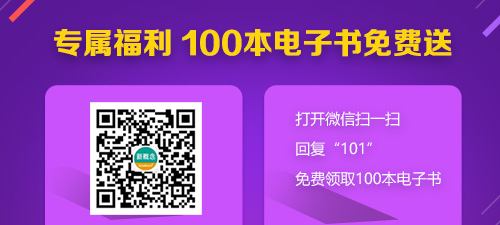双语阅读是英语学习爱好者的天堂,在双语阅读里,不仅可以了解英美当地文化、习俗,还可以掌握地道英语表达,提高英语综合能力。本期主题:新东方刘畅老师为大家带来《双语阅读英语外刊精讲:唯二之选(附音频)》,与大家一起分享。更多双语阅读资料,可点击查看:《双语阅读:英语外刊阅读精讲汇总》
Social media and newspapers
Just the two of them
Publishers are wary of Facebook and Google's heft, but have no choice but to work with them.
IN RECENT months Google and Facebook have made changes that may escape the notice of most of their billions of users, but not of news organizations. Facebook began displaying the logos of publishers in some of its posts, so readers can identify the news source. And Google for the first time gave publishers the ability to control how many times the search engine's users can visit news sites free of charge. Both will directly help papers to sell subscriptions.
To critics of the social-media giants, that might look like wolves offering to help the sheep while still feasting on the herd. The business of both Facebook and Alphabet, parent of Google and YouTube, is to occupy people's time and attention with their free services and content, and to sell ads against those eyeballs. For them, quality journalism is just another hook.
Facebook calls its “News Feed” offering its most important product, but in recent years it has tweaked the feed in ways that de-emphasize actual news, instead prioritizing updates from friends and family over those from publishers. The associated ad revenues for many publishers have been either nominal, in the case of Facebook's fast-loading “instant articles”, or as yet mostly non-existent, in the case of videos they make for the social network. News sites have found they have no choice but to work with the two tech giants, however: Facebook, with its 2bn users, and Google, which directs 10bn clicks a month to publishers, are where their readers are.
So there is no confusion about where the power lies. That is unlikely to change much in future, although publishers are fighting back a bit. In America a consortium of nearly 2,000 news organizations, the News Media Alliance, is asking Congress for an antitrust exemption to allow publishers to negotiate collectively with the two firms. David Chavern, the consortium's president, lists some of the demands: more ad revenue; the sharing of data about their audiences on the tech platforms; better branding for publishers, as the use of logos is very limited (people simply say, “I read that on Facebook”, says Mr Chavern); and support for subscriptions.
That the tech giants are making concessions on some of these points may be because they sense that the political mood is turning against them in America and in Europe, or because of genuine concern for the media ecosystem. Whenever journalism turns, Facebook and Google loom large. Their recent moves, although welcome to many publishers, are unlikely to alter the trajectory of the relationship.

 免费试听
免费试听

时长 : 5:22 主讲 : 金格妃

时长 : 27:51 主讲 : 金格妃

时长 : 17:20 主讲 : 郭宁

时长 : 3:54 主讲 : 金格妃

时长 : 26:58 主讲 : 乔迪

时长 : 26:58 主讲 : 乔迪

时长 : 26:58 主讲 : 乔迪

时长 : 3:54 主讲 : 金格妃

时长 : 1:46 主讲 : 金格妃
 推荐阅读
推荐阅读
每天分享一篇中英双语美文,对英语口语的练习很有帮助,也是积累英语考试中写作,翻译素材的好资料,加油吧! Life is not easy
来源 : 网络 2021-08-12 17:02:00 关键字 : 双语美文
每天分享一篇中英双语美文,对英语口语的练习很有帮助,也是积累英语考试中写作,翻译素材的好资料,加油吧! The art of living
来源 : 网络 2021-08-11 17:02:46 关键字 : 双语美文
每天分享一篇中英双语美文,对英语口语的练习很有帮助,也是积累英语考试中写作,翻译素材的好资料,加油吧! 1 Without you,I& 39
来源 : 网络 2021-08-11 16:08:34 关键字 : 双语美文
每天分享一篇中英双语美文,对英语口语的练习很有帮助,也是积累英语考试中写作,翻译素材的好资料,加油吧! 作家Gerald Durrell写
来源 : 网络 2021-08-11 16:05:41 关键字 : 双语美文
每天分享一篇中英双语美文,对英语口语的练习很有帮助,也是积累英语考试中写作,翻译素材的好资料,加油吧! 1 Muhhamad Ali Ji
来源 : 网络 2021-08-11 16:05:06 关键字 : 双语美文
每天分享一篇中英双语美文,对英语口语的练习很有帮助,也是积累英语考试中写作,翻译素材的好资料,加油吧! 人人常常会感觉到不幸
来源 : 网络 2021-08-11 16:04:03 关键字 : 双语美文
每天分享一篇中英双语美文,对英语口语的练习很有帮助,也是积累英语考试中写作,翻译素材的好资料,加油吧! At this moment you
来源 : 网络 2021-08-01 17:43:00 关键字 : 双语美文
每天分享一篇中英双语美文,对英语口语的练习很有帮助,也是积累英语考试中写作,翻译素材的好资料,加油吧! Already run one mi
来源 : 网络 2021-07-31 17:42:00 关键字 : 双语美文
每天分享一篇中英双语美文,对英语口语的练习很有帮助,也是积累英语考试中写作,翻译素材的好资料,加油吧! Dear son 孩子:
来源 : 网络 2021-07-31 17:41:00 关键字 : 双语美文
每天分享一篇中英双语美文,对英语口语的练习很有帮助,也是积累英语考试中写作,翻译素材的好资料,加油吧! Sometimes I really
来源 : 网络 2021-07-31 17:35:00 关键字 : 双语美文
